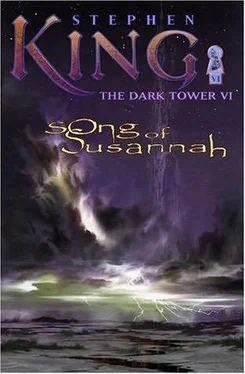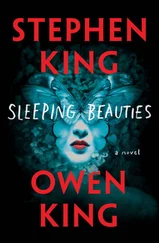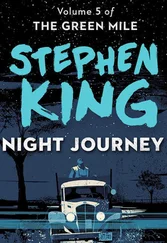Stephen King - Song of Susannah
Здесь есть возможность читать онлайн «Stephen King - Song of Susannah» весь текст электронной книги совершенно бесплатно (целиком полную версию без сокращений). В некоторых случаях можно слушать аудио, скачать через торрент в формате fb2 и присутствует краткое содержание. Год выпуска: 2004, Жанр: Фэнтези, на английском языке. Описание произведения, (предисловие) а так же отзывы посетителей доступны на портале библиотеки ЛибКат.
- Название:Song of Susannah
- Автор:
- Жанр:
- Год:2004
- ISBN:нет данных
- Рейтинг книги:3 / 5. Голосов: 1
-
Избранное:Добавить в избранное
- Отзывы:
-
Ваша оценка:
- 60
- 1
- 2
- 3
- 4
- 5
Song of Susannah: краткое содержание, описание и аннотация
Предлагаем к чтению аннотацию, описание, краткое содержание или предисловие (зависит от того, что написал сам автор книги «Song of Susannah»). Если вы не нашли необходимую информацию о книге — напишите в комментариях, мы постараемся отыскать её.
Song of Susannah — читать онлайн бесплатно полную книгу (весь текст) целиком
Ниже представлен текст книги, разбитый по страницам. Система сохранения места последней прочитанной страницы, позволяет с удобством читать онлайн бесплатно книгу «Song of Susannah», без необходимости каждый раз заново искать на чём Вы остановились. Поставьте закладку, и сможете в любой момент перейти на страницу, на которой закончили чтение.
Интервал:
Закладка:
Two women looked at an alien city through one set of eyes. Susannah knew it was her city, but in many ways, it no longer was. She’d left New York in 1964. How many years further along was this? Twenty? Thirty? Never mind, let it go. Now was not the time to worry about it.
Their combined gaze settled on the little pocket park across the street. The labor pains had ceased for the time being, and when the sign over there said walk, Trudy Damascus’s black woman (who didn’t look particularly pregnant) crossed, walking slowly but steadily.
On the far side was a bench beside a fountain and a metal sculpture. Seeing the turtle comforted Susannah a little; it was as if Roland had left her this sign, what the gunslinger himself would have called a sigul.
He’ll come after me, too, she told Mia. And you should ’ware him, woman. You should ’ware him very well.
I’ll do what I need to do, Mia replied. You want to see the woman’s papers. Why?
I want to see when this is. The newspaper will say.
Brown hands pulled the rolled-up newspaper from the canvas Borders bag, unrolled it, and held it up to blue eyes that had started that day as brown as the hands. Susannah saw the date-June 1st, 1999-and marveled over it. Not twenty years or even thirty, but thirty-five. Until this moment she hadn’t realized how little she’d thought of the world’s chances to survive so long. The contemporaries she’d known in her old life-fellow students, civil rights advocates, drinking buddies, and folk-music aficionados -would now be edging into late middle age. Some were undoubtedly dead.
Enough, Mia said, and tossed the newspaper back into the trash barrel, where it curled into its former rolled shape. She brushed as much dirt as she could from the soles of her bare feet (because of the dirt, Susannah did not notice they had changed color) and then put on the stolen shoes. They were a little tight, and with no socks she supposed they’d give her blisters if she had to walk very far, but-
What do you care, right? Susannah asked her. Ain’t your feet. And knew as soon as she’d said it (for this was a form of talking; what Roland called palaver) that she might be wrong about that. Certainly her own feet, those which had marched obediently through life below the body of Odetta Holmes (and sometimes Detta Walker), were long gone, rotting or-more likely-burned in some municipal incinerator.
But she did not notice the change in color. Except later she’d think: You noticed, all right. Noticed it and blocked it right out. Because too much is too much.
Before she could pursue the question, as much philosophical as it was physical, of whose feet she now wore, another labor pain struck her. It cramped her stomach and turned it to stone even as it loosened her thighs. For the first time she felt the dismaying and terrifying need to push.
You have to stop it! Mia cried. Woman, you have to! For the chap’s sake, and for ours, too!
Yes, all right, but how?
Close your eyes , Susannah told her.
What? Didn’t you hear me? You’ve got to -
I heard you, Susannah said. Close your eyes.
The park disappeared. The world went dark. She was a black woman, still young and undoubtedly beautiful, sitting on a park bench beside a fountain and a metal turtle with a wet and gleaming metal shell. She might have been meditating on this warm late-spring afternoon in the year of 1999.
I’m going away for a little while now, Susannah said. I’ll be back. In the meantime, sit where you are. Sit quiet. Don’t move. The pain should draw back again, but even if it doesn’t at first, sit still. Moving around will only make it worse. Do you understand me?
Mia might be frightened, and she was certainly determined to have her way, but she wasn’t dumb. She asked only a single question.
Where are you going ?
Back to the Dogan, Susannah said. My Dogan. The one inside.
TWO
The building Jake had found on the far side of the River Whye was some sort of ancient communications-and-surveillance post. The boy had described it to them in some detail, but he still might not have recognized Susannah’s imagined version of it, which was based on a technology which had been far out of date only thirteen years later, when Jake had left New York for Mid-World. In Susannah’s when, Lyndon Johnson had been President and color TV was still a curiosity. Computers were huge things that filled whole buildings. Yet Susannah had visited the city of Lud and seen some of the wonders there, and so Jake might have recognized the place where he had hidden from Ben Slightman and Andy the Messenger Robot, after all.
Certainly he would have recognized the dusty linoleum floor, with its checkerboard pattern of black and red squares, and the rolling chairs along consoles filled with blinking lights and glowing dials. And he would have recognized the skeleton in the corner, grinning above the frayed collar of its ancient uniform shirt.
She crossed the room and sat in one of the chairs. Above her, black-and-white TV screens showed dozens of pictures. Some were of Calla Bryn Sturgis (the town common, Callahan’s church, the general store, the road leading east out of town). Some were still pictures like studio photographs: one of Roland, one of a smiling Jake holding Oy in his arms, and one-she could hardly bear to look at it-of Eddie with his hat tipped back cowpoke-style and his whittling knife in one hand.
Another monitor showed the slim black woman sitting on the bench beside the turtle, knees together, hands folded in her lap, eyes closed, a pair of stolen shoes on her feet. She now had three bags: the one she’d stolen from the woman on Second Avenue, the rush sack with the sharpened Orizas in it… and a bowling bag. This one was a faded red, and there was something with square corners inside it. A box. Looking at it in the TV screen made Susannah feel angry-betrayed-but she didn’t know why.
The bag was pink on the other side, she thought. It changed color when we crossed, but only a little.
The woman’s face on the black-and-white screen above the control board grimaced. Susannah felt an echo of the pain Mia was experiencing, only faint and distant.
Got to stop that. And quick.
The question still remained: how?
The way you did on the other side. While she was horsing her freight up to that cave just as fast as she damn could.
But that seemed a long time ago now, in another life. And why not? It had been another life, another world, and if she ever hoped to get back there, she had to help right now. So what had she done?
You used this stuff, that’s what you did. It’s only in your head, anyway - what Professor Overmeyer called “a visualization technique ” back in Psych One. Close your eyes.
Susannah did so. Now both sets of eyes were closed, the physical ones that Mia controlled in New York and the ones in her mind.
Visualize.
She did. Or tried.
Open.
She opened her eyes. Now on the panel in front of her there were two large dials and a single toggle-switch where before there had been rheostats and flashing lights. The dials looked to be made of Bakelite, like the oven-dials on her mother’s stove back in the house where Susannah had grown up. She supposed there was no surprise there; all you imagined, no matter how wild it might seem, was no more than a disguised version of what you already knew.
The dial on her left was labeled emotional temp. The markings on it ran from 32 to 212 (32 in blue; 212 in bright red). It was currently set at 160. The dial in the middle was marked labor force. The numbers around its face went from 0 to 10, and it was currently turned to 9. The label under the toggle-switch simply read CHAP, and there were only two settings: awake and asleep. It was currently set to AWAKE.
Читать дальшеИнтервал:
Закладка:
Похожие книги на «Song of Susannah»
Представляем Вашему вниманию похожие книги на «Song of Susannah» списком для выбора. Мы отобрали схожую по названию и смыслу литературу в надежде предоставить читателям больше вариантов отыскать новые, интересные, ещё непрочитанные произведения.
Обсуждение, отзывы о книге «Song of Susannah» и просто собственные мнения читателей. Оставьте ваши комментарии, напишите, что Вы думаете о произведении, его смысле или главных героях. Укажите что конкретно понравилось, а что нет, и почему Вы так считаете.











